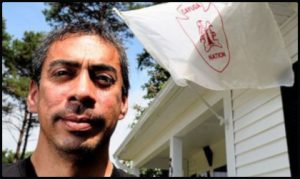Cayuga Nation triumphs in federal court
[ad_1]
In the American state of New York and the Cayuga Nation has reportedly won a federal lawsuit that will allow it to continue operating its gambling-friendly Lakeside Entertainment development in perpetuity.
According to a Tuesday report from the Courthouse News Service, the host community of Union Springs ordered the federally-recognized tribe to shutter the class-two facility in 2003 amid claims that it had not obtained the required building permits. However, the Cayuga Nation took the matter to court and argued that the 86-slot venue did not need such authorizations because it sat on land that was traditionally part of the band’s reservation and was therefore legal under the tenets of the Indian Gaming Regulatory Act.
Contentious claim:
During oral arguments conducted in May, Union Springs attorney David Tennant reportedly tried to convince the three-judge United States Court of Appeals for the Second Circuit that the Cayuga Nation’s ancient reservation had ‘not officially been disestablished’ but that Lakeside Entertainment now sat on land ‘over which the tribe exercises no inherent sovereignty in whole or in part’. He purportedly moreover contended that a 2005 decision from the United States Supreme Court barred the northern New York group from being able to unilaterally revive its sovereignty over parcels it had lost but later repurchased.
Historical harms:
The newly-established government of the United States reportedly granted a reservation to the Cayuga Nation in 1794 via the Treaty of Canandaigua although this land was subsequently bought by the state of New York and unilaterally taken away from the tribe. But the band purportedly began buying up this lost territory on the open market some 20 year ago with the intention of premiering the Lakeside Entertainment facility, which Union Springs felt would contravene a 1958 ordinance that prohibits local venues from offering games of chance.
Sweeping superiority:
In voicing the judgement, Judge Gerard Lynch from the United States Court of Appeals for the Second Circuit reportedly stated that federal laws rather than local statutes govern the operation of gambling facilities on tribal lands and that Congress had played no role in disestablishing the Cayuga Nation’s ancient reservation. This ruling, which chimed with an earlier decision from the United States District Court for the Northern District of New York, purportedly means that Lakeside Entertainment sits on aboriginal territory and is thus legal under the principles of the Indian Gaming Regulatory Act.
Reportedly read the court’s judgement…
“The United States neither ratified nor interfered with these  transactions. As is important for present purposes, however, the village concedes that no act of Congress has disestablished the Cayuga Reservation in the intervening centuries.”
transactions. As is important for present purposes, however, the village concedes that no act of Congress has disestablished the Cayuga Reservation in the intervening centuries.”
Appreciated affirmation:
Clint Halftown (pictured) serves as Chief for the Cayuga Nation and he reportedly told the Courthouse News Service the decision represents a ‘great victory’ because it has confirmed his tribe’s right to do business ‘free of local interference and discrimination.’
A statement from Halftown reportedly read…
“Sovereignty is the bedrock of the relationship between federally-recognized Native American nations like ours and the state and local governments with whom we must interact. This is yet another affirmation of our sovereignty and the Cayuga Nation will continue to enforce its inherent rights against all attempts at interference.”
[ad_2]
Source link
